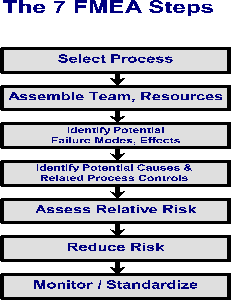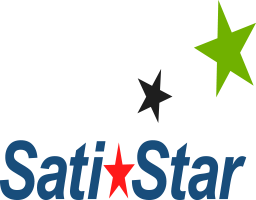Failure Modes & Effects Analysis (FMEA)
Overview
FMEA is one of the most powerful tools available today to reduce or eliminate the risk of failure associated with all of the obstacles that organizations face in their design, manufacturing, service, administration or improvement efforts.
Originally developed by NASA, FMEA enables you to develop “what-if” scenarios of what can possibly go wrong, and then develop plans to pro-actively prevent those possible sources of problems.
This two-day course is designed to provide participants with a thorough grounding in FMEA core concepts. The course also touches upon the organizational structure required to support and sustain a FMEA program within a business environment, and provides tips on how to overcome social obstacles.
Approach
 This course is a workshop in which roughly 75% of the course is dedicated to practical and client-specific applications of FMEA techniques. Training is provided on FMEA concepts, after which attendees create FMEAs in groups. Coaching and feedback is provided after which attendees incorporate the feedback as improvements in their FMEAs.
This course is a workshop in which roughly 75% of the course is dedicated to practical and client-specific applications of FMEA techniques. Training is provided on FMEA concepts, after which attendees create FMEAs in groups. Coaching and feedback is provided after which attendees incorporate the feedback as improvements in their FMEAs.
- Our approach imparts fundamental skills and then gives attendees the opportunity to learn by doing, followed by coaching and feedback on their work
- The social and organizational issues surrounding FMEA sustainability are taught
- Attendees learn the management approach necessary to effectively deploy FMEA strategies company-wide
- We address the complete range of FMEA applications for system, design, manufacturing, and service processes along with a proprietary planning FMEA
What You Will Learn
Day 1:
- The first day of this course starts by touching briefly on its genesis in the aerospace industry and the reasons for its widespread popularity.
- FMEA benefits, core concepts and logic are introduced and fully demonstrated with practical examples and case studies.
- Participants work in teams to build their first process FMEA for an actual process (client-specific).
- Strong emphasis is placed on understanding and applying effective process controls for the client’s environment.
- Team presentations and review provide vital feedback and additional coaching.
- The day ends with a homework assignment – teams plan to complete a FMEA for their targeted process prior to their next classroom session.
Day 2:
- The group begins the second day with team FMEA presentations for group review.
- FMEA documents are revised in real-time, allowing for a head start on the client’s implementation program and setting the stage for rapid successes.
- Various other types of FMEAs are discussed:
- System FMEA
- Design FMEA
- Service FMEA
- A Japanese FMEA variation
- Participants again apply these new concepts to their real-life processes
- Group review and feedback follows
- Since technical prowess alone does not ensure program sustainability, a discussion of social and organizational issues – both generic and client-specific is held.
- This leads into strategies and suggestions for successfully implementing corporate FMEA strategies as part of an overall quality improvement program.
- Simple software tools and techniques used to maximize FMEA program efficiency and effectiveness.
Training Outcomes
Graduates of this course will have grounding in FMEA technology as well as an understanding of the obstacles and failure modes associated with effective use of FMEA as an improvement methodology. Graduates will be well prepared to conduct effective FMEAs that can drive rapid and significant process improvement within their organization.
This course is primarily targeted at individuals who want to assess the potential risks of failures and performance problems, and then develop mechanisms to prevent potential problems from occurring.
WHAT PEOPLE ARE SAYING
SatiStar's Experience Makes The Difference!
